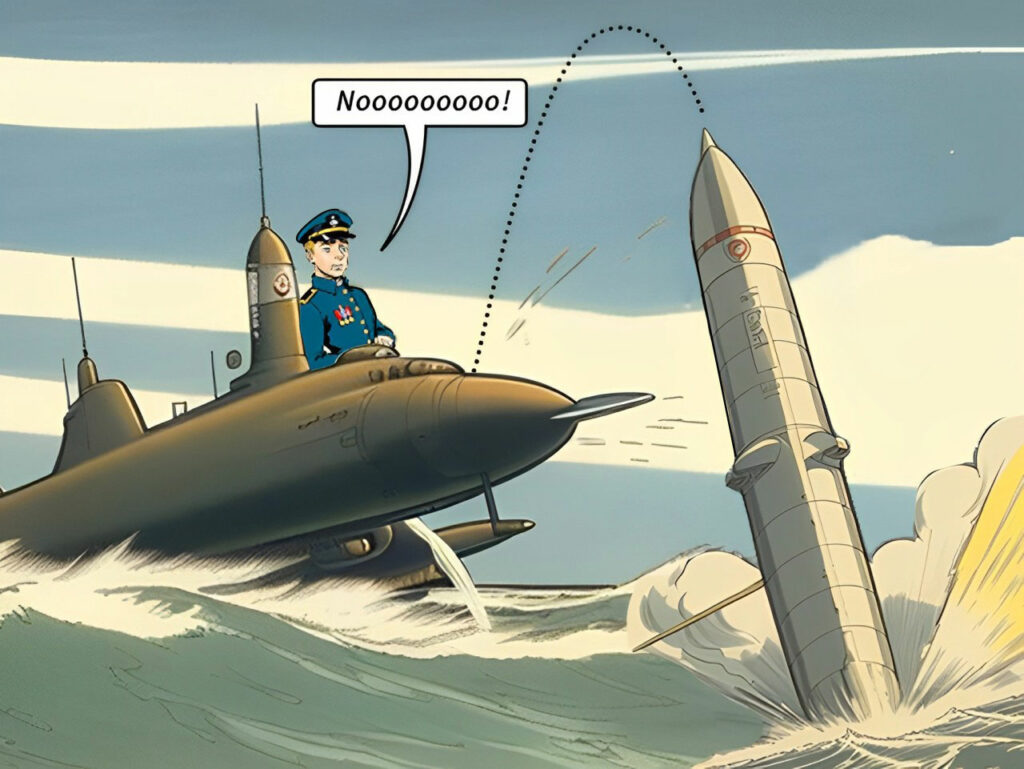Is the West in terminal decline? Some have dubbed the British armed forces a “laughing stock” after an expensive UK missile misfired sensationally for the second time in a row.
UK sub almost sinks itself with missile flop
 Sea fiasco: An unarmed Trident II ballistic missile crashed into the sea shortly after launch.
Sea fiasco: An unarmed Trident II ballistic missile crashed into the sea shortly after launch. Glossary
TS Eliot - The initials stand for Thomas Stearns. Born in the US, Eliot was one of the most influential figures in 20th-Century literature.
Nuclear deterrent - Nuclear weapons kept by a country as a warning to others not to attack.
Bulwark - A defensive wall.
Gravitas - Seriousness, and an intelligent manner.
Farce - An absurd situation, or an absurd and comic play.
Gaffes - Blunders or unintentional actions or sayings which cause embarrassment.
Adversaries - Rivals or enemies.
Imperial - Relating to an empire.
Dissident - A person who opposes official policy, especially that of an authoritarian state.
Excoriating - Expressing strong disapproval of.
Liberalism - A political and moral philosophy that protects and enhances the rights of the individual.
Equivocates - Being intentionally vague or unclear.
Impunity - Safety from punishment. It derives from a Latin word for penalty.
